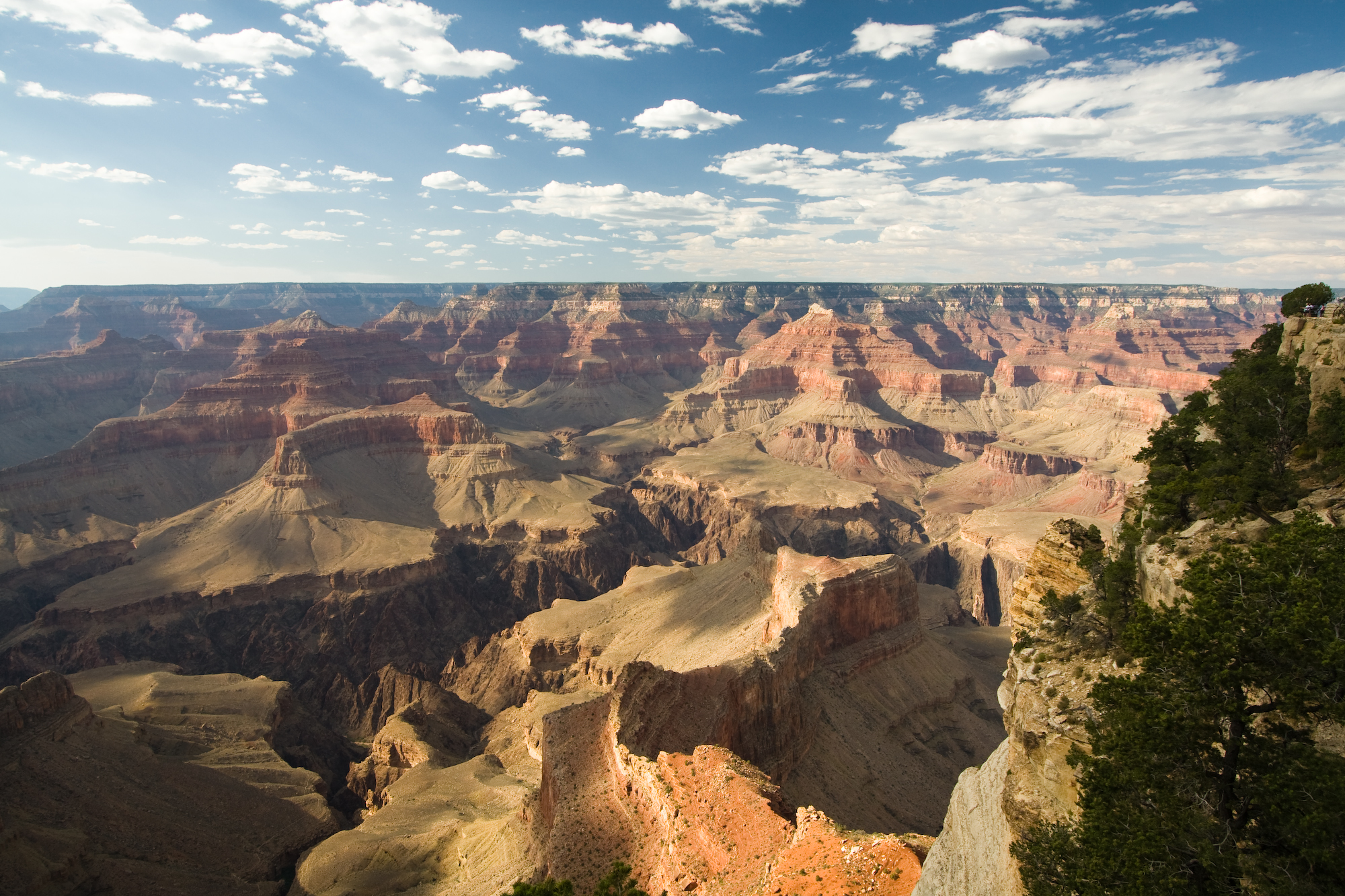Ask The Experts
Join Communities
 Enhance your Writing Skills |
 Become a Photographer |
 Handigifts |
 Learn about Jazz & More |
 Love the Art |

Seven Natural Wonders of the World:
Grand Canyon
The Grand Canyon is a steep-sided gorge carved
by the Colorado River in the United States state of Arizona. It
is largely contained within the Grand Canyon National Park -
one of the first national parks in the United
States. President Theodore Roosevelt was a major
proponent of preservation of the Grand Canyon area.
Longstanding scientific consensus has been that the canyon was
created by the Colorado River over a six million year period. The
canyon is 277 miles long, ranges in width from 4 to 18 miles and
attains a depth of over a mile (1.83 km). Nearly two billion
years of the Earth's history have been exposed as the Colorado
River and its tributaries cut their channels through layer after
layer of rock while the Colorado Plateau was uplifted.
Geography and
Geology
The Grand Canyon is a massive rift in the
Colorado Plateau that exposes uplifted Proterozoic and Paleozoic
strata and is also one of the six distinct physiographic sections
of the Colorado Plateau province. The Grand Canyon is unmatched
throughout the world for the vistas it offers to visitors on the
rim. It is not the deepest canyon in the world -
but Grand Canyon is known for its overwhelming size and its
intricate and colorful landscape. Geologically it is significant
because of the thick sequence of ancient rocks that are
beautifully preserved and exposed in the walls of the canyon.
These rock layers record much of the early geologic history of
the North American continent.
The principal consensus among geologists is that the Colorado
River basin has developed in the past 40 million years. A recent
study places the origins of the canyon beginning some 17 million
years ago. Previous estimates had placed the age of the canyon at
5 to 6 million years. The result of all this erosion is one of
the most complete geologic columns on the planet.
Weather
Weather in the Grand Canyon varies according to
elevation. Temperatures vary wildly throughout the year, with
summer highs within the Inner Gorge commonly exceeding 100 F
(37.8 C) and winter minimum temperatures sometimes falling below
zero degrees Fahrenheit (-17.8 C) along the canyon's rims.
Visitors are often surprised by these potentially extreme
conditions, and this, along with the high altitude of the
canyon's rims, can lead to unpleasant side effects such as
dehydration, sunburn, and hypothermia.
|
Tourism Grand Canyon National Park is one of the world's premier natural attractions, attracting about five million visitors per year. Overall, 83 per cent were from the United States, while seventeen per cent of visitors were from outside the United States; the most prominently represented nations were the United Kingdom, Canada, Japan, Germany and The Netherlands. Perhaps the most heart-stopping view of the canyon is had from the Toroweap Overlook situated 3000 vertical feet above the Colorado River. This region - "One of the most remote in the United States" according to the National Park Service - is reached only by one of three lengthy dirt tracks, that start from St. George, Utah, Colorado City or near Pipe Spring National Monument. A visit to this area can be challenging, but rewarding. The Park Service manages the area for its primitive values and, therefore, improvements and services are minimal. |
| To the left is a picture of my Mom and I at the Grand Canyon, taken about five years ago. I must say, the site itself is really something to see. If you're into nature, the Grand Canyon is definitely worth a trip! |
Reference / Image Credits Wikipedia,
Wikimedia, Wikimedia
Ask The Experts
Post Comments